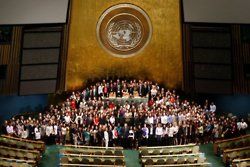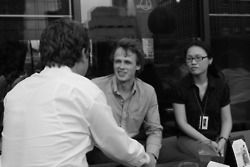In the same summer, I collaborated with a Social-Environmental Impact Assessment Workshop Hue, Vietnam. As a guest consultant to the first environmental-social impact assessment alliance in Vietnam, I assisted in coordinating the group discussion, cooperated with the Chinese expert and Vietnamese colleagues for the seminar design, and fostered a dialogue among various stakeholders. The seminars brought together NGOs, different levels of governments, and academia, partnering together to promote transparent discourses and effective mechanisms through collaborative governance.
United Nations
New York City Summer 2010

 During the summer of 2010, I had the opportunity to intern at the United Nations in the Cartographic Section, a subdivision of the Department of Field Support. The internship exposed me to collaborative governance in action, as I contributed to a diverse group of scholars, activists, diplomats, and specialists from around the world. It also afforded the opportunity to enhance my skills in the implementation of ArcGIS to real-world situations.
During the summer of 2010, I had the opportunity to intern at the United Nations in the Cartographic Section, a subdivision of the Department of Field Support. The internship exposed me to collaborative governance in action, as I contributed to a diverse group of scholars, activists, diplomats, and specialists from around the world. It also afforded the opportunity to enhance my skills in the implementation of ArcGIS to real-world situations.